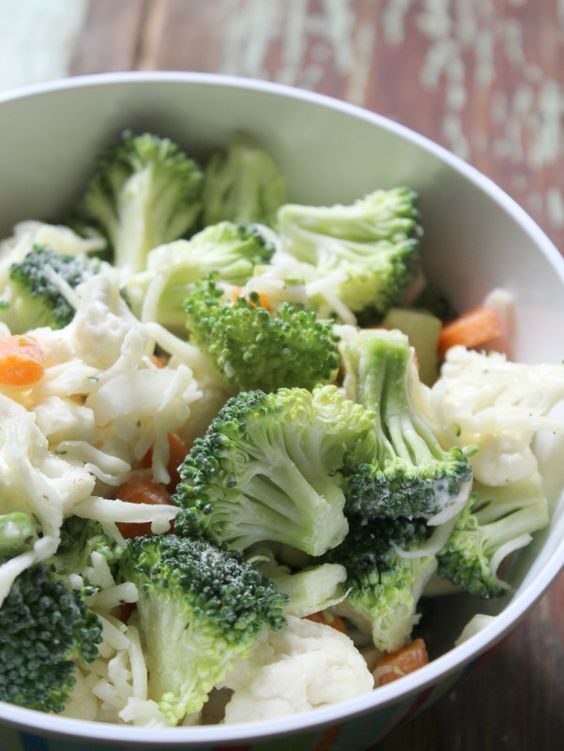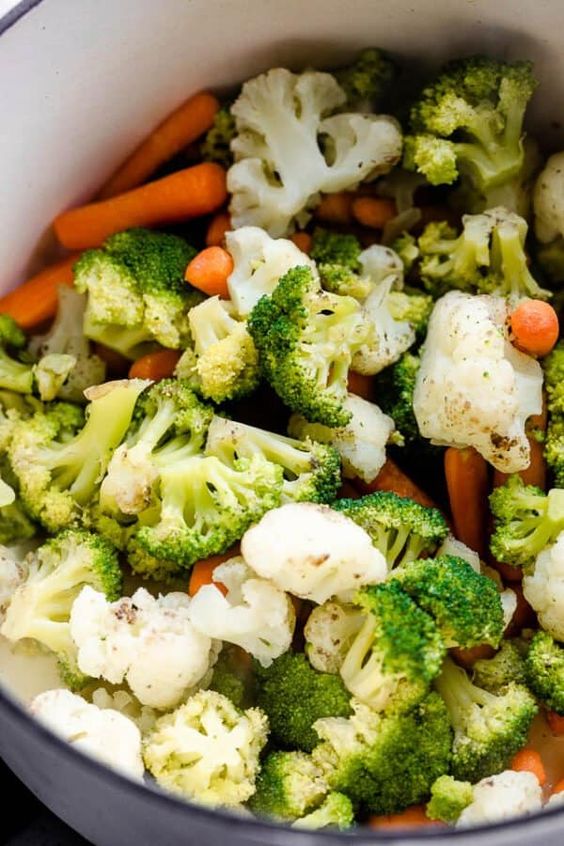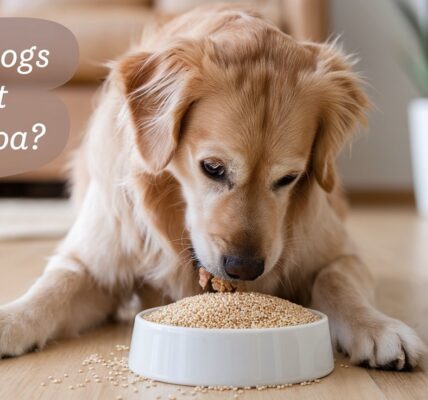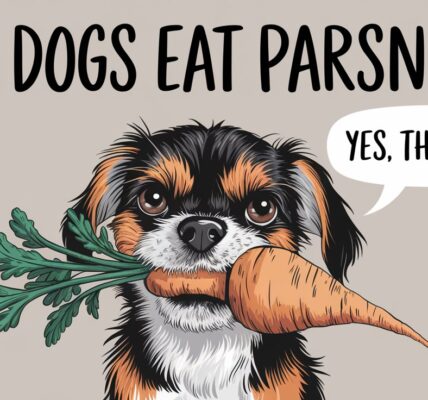Can Dogs Eat Broccoli?
Can Dogs Eat Broccoli? Yes, dogs can eat broccoli in moderation. It’s a nutritious vegetable that can be a healthy addition to your dog’s diet if prepared correctly and given in appropriate amounts.

Nutritional Benefits of Broccoli for Dogs
Broccoli is packed with nutrients that can be beneficial for dogs when given in moderation. Here are some of the key nutritional benefits:
Vitamins in Broccoli
Vitamin K
Vitamin K is crucial for ensuring your dog’s blood clots properly and for maintaining strong bones.. Including small amounts of broccoli in your dog’s diet can help maintain these crucial functions.
Vitamin C
Vitamin C acts as an antioxidant, supporting your dog’s immune system and overall health. While dogs can produce their own vitamin C, additional sources like broccoli can provide a beneficial boost.
Minerals in Broccoli
Calcium
Calcium is very important for the bones as well as muscle functions. Broccoli can contribute to your dog’s calcium intake, supporting these critical areas of health.
Potassium
Potassium is necessary for maintaining proper fluid balance, nerve function, and muscle contractions. Adding broccoli to your dog’s diet can help ensure they get enough of this important mineral.
Fiber
Broccoli is a good source of dietary fiber, which aids in digestion and helps maintain healthy bowel movements. Fiber can also help dogs for weight management.
Antioxidants
Broccoli contains various antioxidants, including sulforaphane, which can help protect cells from damage and reduce inflammation. Antioxidants are important for overall health and can help prevent chronic diseases.
How to Add Broccoli into Your Dog’s Diet
By including broccoli in your dog’s diet in moderation, you can provide them with valuable vitamins, minerals, and other nutrients that support their overall health and well-being.

Potential Risks of Feeding Broccoli to Dogs
While broccoli offers several health benefits for dogs, it’s important to be aware of potential risks associated with feeding it to them. Here are some potential concerns:
- Gastrointestinal Issues: Too much broccoli can lead to digestive problems such as gas, bloating, and diarrhea due to its high fiber content. It’s best to introduce broccoli gradually and monitor your dog for any adverse reactions.
- Choking Hazard: Broccoli stems and large pieces can pose a choking risk, particularly for smaller dogs. Always cut broccoli into small, manageable pieces to reduce this risk.
- Allergic Reactions: Though rare, some dogs may have an allergic reaction to broccoli. Itching, swelling, or difficulty breathing symptoms are included in allergic reactions. If you notice any of these signs, discontinue feeding broccoli and consult your vet.
- Thyroid Issues: Broccoli contains goitrogens, which can interfere with thyroid function if consumed in large quantities. While this is more of a concern with raw broccoli, cooking the vegetable can reduce goitrogen levels.
- High Fiber Content: While fiber is beneficial, too much can lead to digestive upset. Ensure that broccoli is only a small part of your dog’s overall diet to avoid any negative effects.
How Much Broccoli Can Dogs Eat? Can Dogs Eat Broccoli
When feeding your dog broccoli, it’s important to do so in moderation.
- Portion Size: Broccoli should constitute no more than 10% of your dog’s daily food intake. For small dogs, this might be just a few small pieces, while larger dogs can handle a bit more.
- Frequency: Offering broccoli a couple of times a week is generally safe. Avoid making it a daily treat to prevent any potential digestive issues.
- Preparation: Serve broccoli in small, bite-sized pieces to avoid choking hazards. Cooking or steaming the broccoli can make it easier for your dog to digest.
Always start with a small amount and observe your dog for any adverse reactions before increasing the portion size. If you have any concerns about incorporating broccoli into your dog’s diet, consult your veterinarian for personalized advice.

How to Safely Prepare Broccoli for Dogs: Can Dogs Eat Broccoli
Proper preparation of broccoli can help minimize risks and maximize benefits.
Raw vs. Cooked
Both raw and cooked broccoli can be fed to dogs, but cooked broccoli is easier for them to digest. Steaming is the best cooking method as it retains the most nutrients without adding any harmful ingredients.
Steaming Broccoli
To steam broccoli, simply place it in a steamer basket over boiling water for a few minutes until it’s tender.
Avoiding Seasonings
Avoid adding any seasonings, oils, or butter to the broccoli. These can be harmful to dogs and negate the health benefits of the vegetable.
Signs Your Dog May Be Having an Adverse Reaction to Broccoli
It’s important to monitor your dog for any signs of adverse reactions when introducing new foods like broccoli.
Digestive Upset
If your dog experiences vomiting, diarrhea, or excessive gas after eating broccoli, it may be a sign that they can’t tolerate it well.
Behavioral Changes
Changes in behavior, such as lethargy or irritability, can also indicate that your dog is having an adverse reaction to broccoli. If you notice any of these signs, stop feeding broccoli and consult your vet.

Alternatives to Broccoli for Dogs: Can Dogs Eat Broccoli
If your dog doesn’t tolerate broccoli well or if you’re looking for variety in their diet, there are several other vegetables and herbs that can provide similar nutritional benefits. Here are some healthy alternatives to broccoli:
Basil
Nutritional Benefits:
- Antioxidants: Basil is rich in antioxidants, which help protect your dog’s cells from damage and support overall health.
- Vitamins: Contains vitamins A, C, and K, which support vision, immune function, and bone health.
How to Serve:
- Sprinkle fresh basil leaves in small amounts over your dog’s regular food.
- Ensure it is washed thoroughly and avoid any added seasonings.
Cilantro
Nutritional Benefits:
- Detoxification: Cilantro is known for its ability to help detoxify the body by removing heavy metals.
- Vitamins and Minerals: Rich in vitamins A, C, and K, as well as minerals like potassium and calcium.
How to Serve:
- Chop fresh cilantro leaves finely and add a small amount to your dog’s meals.
- As with basil, ensure it’s clean and free from pesticides.
Okra
Nutritional Benefits:
- Fiber: High in dietary fiber, which aids in digestion and helps maintain healthy bowel movements.
- Vitamins and Antioxidants: Contains vitamins C and K, folate, and antioxidants that support immune function and overall health.
How to Serve:
- Serve okra cooked and cut into small, manageable pieces to avoid choking hazards.
- Steaming or boiling okra without any added seasonings is best.
Green Beans
Nutritional Benefits:
- Low Calorie: Green beans are low in calories, making them an excellent treat for weight management.
- Fiber and Vitamins: High in fiber and contain vitamins A, C, and K, which support various aspects of health including vision, immune function, and bone strength.
How to Serve:
- Serve green beans steamed or boiled without any added salt or seasoning.
- You can also offer them raw, but be sure they are cut into small, manageable pieces.
| Vegetable/Herb | Nutritional Benefits | How to Serve |
|---|---|---|
| Basil | – Rich in antioxidants – Contains vitamins A, C, and K |
– Sprinkle fresh basil leaves in small amounts over your dog’s food – Ensure it is washed thoroughly and free from added seasonings |
| Cilantro | – Helps detoxify the body by removing heavy metals – Rich in vitamins A, C, and K, and minerals like potassium and calcium |
– Chop fresh cilantro leaves finely and add a small amount to your dog’s meals – Ensure it is clean and free from pesticides |
| Okra | – High in dietary fiber, aiding digestion – Contains vitamins C and K, folate, and antioxidants |
– Serve cooked and cut into small pieces to avoid choking – Steam or boil without added seasonings |
| Green Beans | – Low in calories, good for weight management – High in fiber and contains vitamins A, C, and K |
– Serve steamed or boiled without added salt or seasoning – Can be offered raw, cut into small pieces |

Conclusion: Can Dogs Eat Broccoli
Introducing a variety of vegetables and herbs into your dog’s diet can provide numerous health benefits and add some tasty variety to their meals. While many dog owners ask, “Can dogs eat broccoli?” the answer is yes, in moderation. However, alternatives like basil, cilantro, okra, and green beans offer similar advantages and can be excellent additions to your dog’s diet. Each of these alternatives provides unique vitamins, minerals, and antioxidants that support your dog’s overall health and well-being.
When incorporating new foods, always start with small amounts and monitor your dog for any adverse reactions. Gradually increasing the amount ensures your dog can tolerate and benefit from these nutritious additions. Remember to serve these vegetables and herbs in their simplest form—fresh, steamed, or boiled without any added seasonings.
FAQs: Can Dogs Eat Broccoli
How much broccoli can I give my dog?
You should feed your dog broccoli in moderation. A good rule of thumb is that broccoli should make up no more than 10% of your dog’s daily food intake. For small dogs, this might mean just a few small pieces, while larger dogs can handle a bit more. Always start with small amounts to see how your dog reacts before increasing the portion size.
Does broccoli give dogs gas?
Yes, broccoli can give dogs gas. Broccoli contains a high amount of fiber, which can be difficult for some dogs to digest, leading to gas, bloating, or even diarrhea if consumed in large quantities. It’s important to introduce broccoli slowly into your dog’s diet and monitor their reaction.
What are the best veggies for dogs?
Some of the best vegetables for dogs include:
- Carrots: Low in calories and high in fiber and vitamins.
- Green Beans: Rich in fiber and vitamins, and low in calories.
- Sweet Potatoes: Packed with vitamins A and C, and fiber.
- Pumpkin: Good for digestion due to its fiber content.
- Spinach: Contains iron and vitamins, but should be given in moderation due to its oxalic acid content.
Can dogs eat broccoli or cauliflower?
Yes, dogs can eat both broccoli and cauliflower. Both vegetables are safe for dogs when given in moderation and can provide valuable nutrients. However, as with any new food, they should be introduced gradually, and portion sizes should be kept small to avoid gastrointestinal issues.
Why is my dog sick if he ate broccoli?
If your dog is sick after eating broccoli, it could be due to several reasons:
- Overconsumption: Eating too much broccoli can cause digestive upset, leading to vomiting or diarrhea.
- Choking hazard: Large pieces of broccoli can pose a choking risk, especially for smaller dogs.
- Sensitivity: Some dogs might be sensitive or allergic to broccoli, causing stomach upset or other adverse reactions.
If your dog shows signs of illness after eating broccoli, it’s best to consult your veterinarian.
Can broccoli cause itching in dogs?
While rare, broccoli can cause allergic reactions in some dogs, which might include itching. If your dog starts itching after eating broccoli, it could be a sign of an allergy. Other symptoms of an allergic reaction might include swelling, hives, or difficulty breathing. If you notice any of these signs, stop feeding your dog broccoli and consult your veterinarian immediately.

Jahanzaib Kaleem is a passionate and knowledgeable pet writer and veterinarian dedicated to enhancing the well-being of pets and educating pet owners around the world. With years of experience in veterinary medicine and a deep love for animals, Jahanzaib combines his medical expertise with a flair for writing to deliver insightful and practical advice on pet care.





















1 COMMENTS